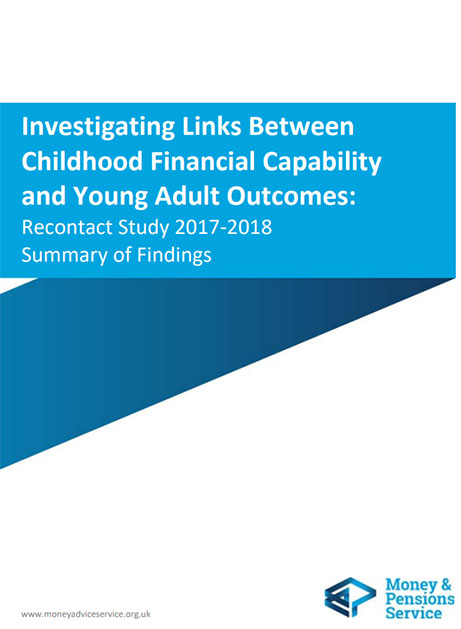Investigating links between childhood financial capability and young adult outcomes -Recontact Study 2017-2018 – Summary of Findings
The transition from childhood to adulthood can be a challenging time. One of the many challenges that occurs for the young person during this period is taking on extra financial responsibilities and eventually becoming financially independent. It may be that there are ways to make these extra responsibilities less of a challenge, and to better support young people to enter adulthood with the financial capability they need to make informed financial decisions and achieve their goals.
Previous research1 has shown that as young people approach adulthood, skills-based learning relevant to the independent financial lives they will soon be leading is essential to enable them to enter adulthood with the skills and mindsets they need to make informed financial decisions and achieve their goals. Young people’s skills and behaviour at age 16 have been proven to be linked to their financial wellbeing later in life, and many of the indicators of vulnerability to poor financial capability as a young person are stronger at age of 16-17 than earlier ages. Previous research has also shown that many young people approaching independence do not have the skills, attitudes, and behaviours to enable them to make the most of their money.
However, there remain significant gaps in understanding from research about how financial education and financial capability as a child or young person links to financial capability as an adult.
This report aims to begin to address this. It outlines what we have found to have a link to the financial capability of young people who have recently transitioned into adulthood. It is based on statistical analysis of 397 people aged between 18 and 20 years of age, along with their parents or carers. The young people completed three annual surveys on their financial capability starting when they were aged between 15 and 17 years old.

